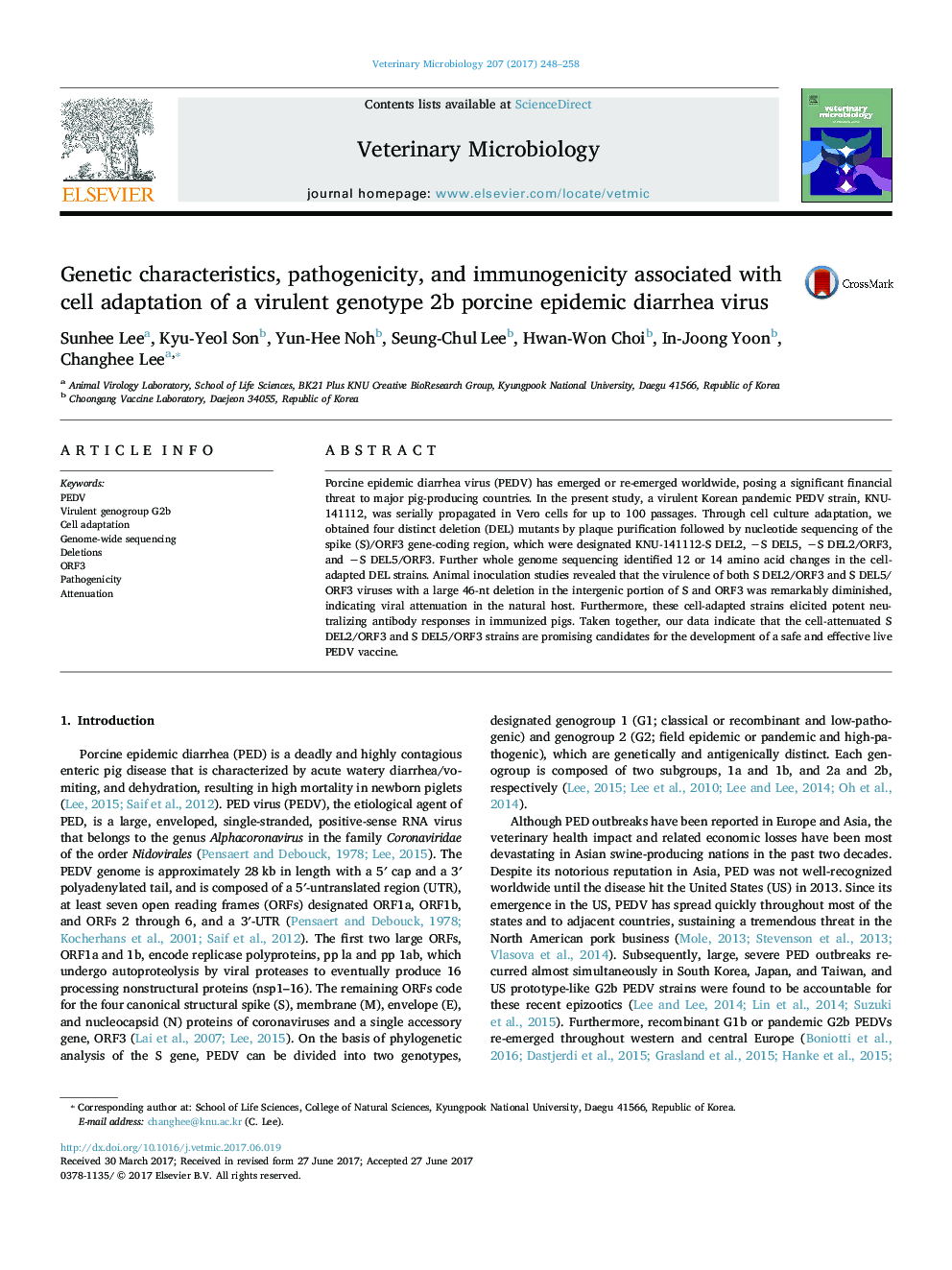| Article ID | Journal | Published Year | Pages | File Type |
|---|---|---|---|---|
| 5545234 | Veterinary Microbiology | 2017 | 11 Pages |
Abstract
Porcine epidemic diarrhea virus (PEDV) has emerged or re-emerged worldwide, posing a significant financial threat to major pig-producing countries. In the present study, a virulent Korean pandemic PEDV strain, KNU-141112, was serially propagated in Vero cells for up to 100 passages. Through cell culture adaptation, we obtained four distinct deletion (DEL) mutants by plaque purification followed by nucleotide sequencing of the spike (S)/ORF3 gene-coding region, which were designated KNU-141112-S DEL2, âS DEL5, âS DEL2/ORF3, and âS DEL5/ORF3. Further whole genome sequencing identified 12 or 14 amino acid changes in the cell-adapted DEL strains. Animal inoculation studies revealed that the virulence of both S DEL2/ORF3 and S DEL5/ORF3 viruses with a large 46-nt deletion in the intergenic portion of S and ORF3 was remarkably diminished, indicating viral attenuation in the natural host. Furthermore, these cell-adapted strains elicited potent neutralizing antibody responses in immunized pigs. Taken together, our data indicate that the cell-attenuated S DEL2/ORF3 and S DEL5/ORF3 strains are promising candidates for the development of a safe and effective live PEDV vaccine.
Related Topics
Life Sciences
Agricultural and Biological Sciences
Animal Science and Zoology
Authors
Sunhee Lee, Kyu-Yeol Son, Yun-Hee Noh, Seung-Chul Lee, Hwan-Won Choi, In-Joong Yoon, Changhee Lee,
